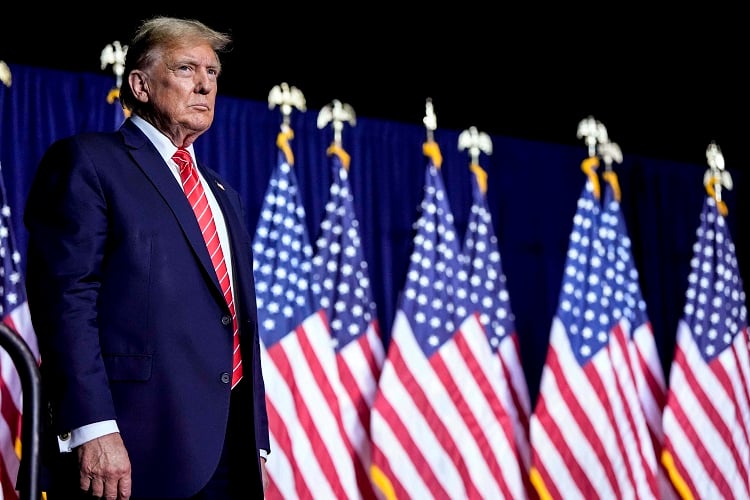The Supreme Court has found a “way out” to avoid ruling on Colorado's effort to remove Donald Trump from the presidential ballot. Nine justices agreed that states did not have the power to enforce Section 3 of the Fourteenth Amendment against candidates for federal office.
However, the court split 5-4 on whether Congressional legislation was needed to implement the law. This was important. Because in the absence of a law, even if Donald Trump wins his 2024 presidential election, it could still be challenged.
Article 3 does not say that an oath-breaking candidate who commits rebellion against the Constitution cannot run for office or even win an election. It just says he can't “hold” the job. Divisions within the court developed as five justices stated that implementing Article III required Congressional legislation, making subsequent challenges difficult if not futile.
The four dissenting justices asserted the familiar principle that courts should not go beyond what is necessary to resolve the issue at hand. For those justices, the majority appeared to block further Article III lawsuits against Trump, saying Congressional legislation is needed before Article III can take effect.
After this melee, the most important question remaining before the court is the scope of President Trump's executive privilege.
For all those who believe that Donald Trump is a dangerous man, and there are many, the key question is what he can do with his presidential powers. Trump has told the Washington, D.C., Court of Appeals that as president he has immunity from directing SEAL Team 6 to assassinate a political opponent and cannot be charged with the crime until he leaves office.
Although the Supreme Court has never addressed the scope of presidential immunity, President Trump's argument certainly provides reason to do so. In last week's article, I discussed the fact that the federal appeals court in Washington, D.C., failed to adequately or realistically address the issue of immunity. The Supreme Court then took up the case, but there were long delays. A Supreme Court ruling on the issue may not arrive until the end of June, severely limiting the amount of time available to try President Trump on election interference issues before the November election.
The issue here is the scope of immunity granted by the Supreme Court. Trump's own ideas about immunity (sealing Team 6's immunity until after he leaves office) align well with his actions to ensure he would not lose the 2020 election. If he can obtain this form of immunity from the Supreme Court, which is almost unimaginable, he will be completely free from punishment if he wins the 2024 election and strives to remain in office beyond 2028. You will be protected.
In reality, the court will grant him and future presidents immunity covering all acts done in pursuit of legal authority and all acts done for legitimate purposes outside the scope of official authority. Likely to give privileges. If it takes that position, the court would need to consider two of Trump's arguments.
First, what Mr. Trump did on January 6, pressuring Vice President Pence to withhold valid votes from states that Mr. Trump falsely claimed he had won even though he lost, This means that it was consistent with his responsibilities.
And second, even though what he did on January 6th was not part of his presidential duties, somehow his immunity extends to that. Indeed, I can't think of one.
To make this case, President Trump will argue that he intervened in the counting of electoral votes based on Article II's directive that the president “see to the faithful execution of the laws.” That's exactly what he was doing, he would argue. This is a very weak claim because there was no evidence that the election Trump was challenging was fraudulent or needed to be corrected. Absent evidence of significant errors in the electoral count, the court would reject it.
The court will then consider whether this activity is in any case within his powers and, if not, whether he should be granted immunity in any event. This will be the issue that will determine whether the election interference case moves forward.
In my view, a court would find that immunity is warranted if the president acted in excess of his authority for a legitimate purpose; I would agree that it wasn't necessary. His actions were therefore unnecessary.
In such circumstances, immunity would be denied and the election interference trial would proceed.

